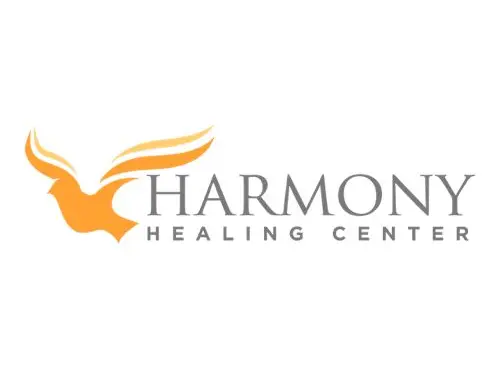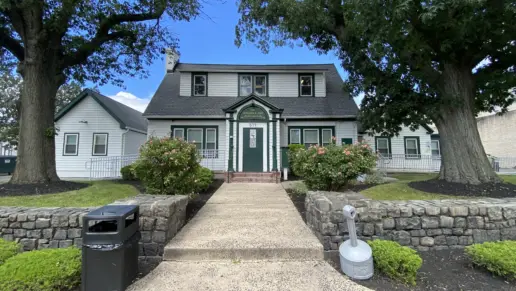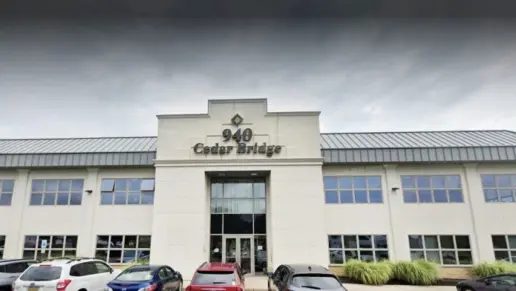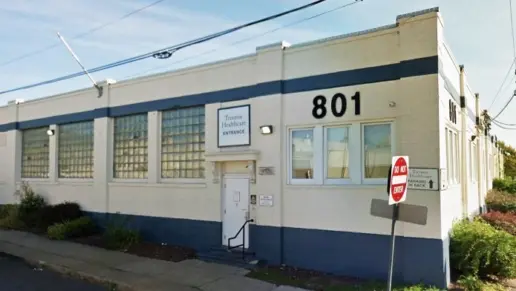About Harmony Healing Center
Harmony Healing Center is a rehab facility located in Cherry Hill, NJ. Harmony Healing Center delivers a full spectrum of care from outpatient detox to partial hospitalization and intensive outpatient treatment. After completion of these we continue the support with outpatient treatment, aftercare and Medication Assisted Treatment (MAT).
Harmony Healing Center is a member of the Harmony Recovery family of rehabilitation centers. This means we are dedicated to delivering excellence in healthcare. The principles of evidence-based treatment are at the heart of everything we do. Evidence-based treatment applies methods which have undergone rigorous scientific testing to determine effectiveness. Evidence-based care is treatment you can trust. Because we base our drug and alcohol treatments on sound science you can expect to see positive results. Understanding which therapies and models of care consistently deliver positive outcomes is how we formulate our program.
We know that recovery does not begin and end within the walks of our drug and alcohol recovery center. The most valuable service we can provide to you once you are safe and stable, is to give you the tools you will need to thrive in your recovery long after you leave our program. We like to say that recovery is a marathon, not a sprint. Like a marathon, recovery requires both preparation and endurance. Part of our mission here is you help you prepare and develop both and understanding of your illness and the knowledge of what it takes to keep it in check. Recovery calls for continual growth. There will be ups and downs, but we must be forever moving forward. At Harmony Healing Center, we will provide you with everything you need to build that amazing life in recovery that you’ve dreamed of. We’re ready if you are. Let’s get started!
Latest Reviews
Gallery
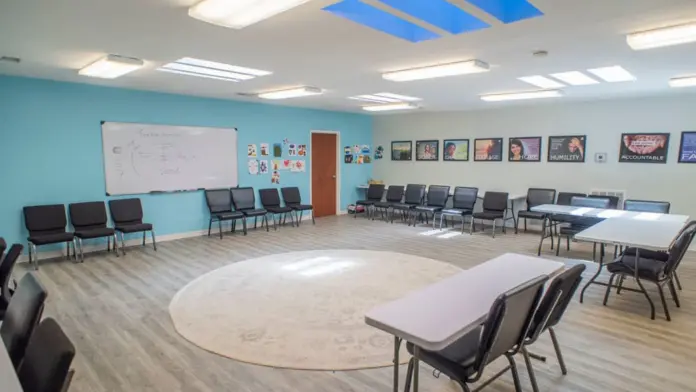
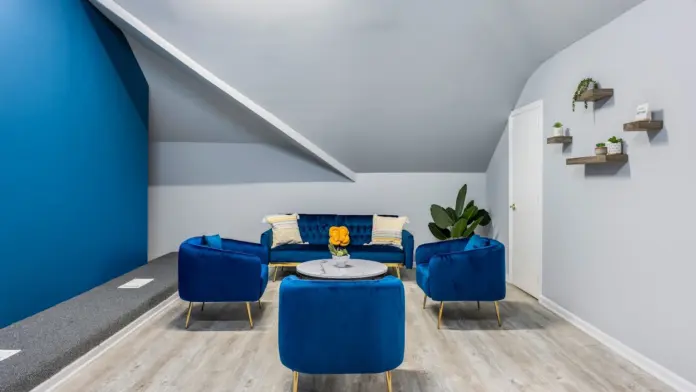
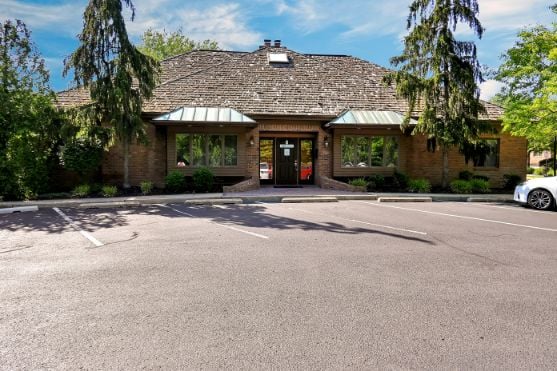
Location
Accepted Insurance
Other Forms of Payment
Private insurance refers to any kind of healthcare coverage that isn't from the state or federal government. This includes individual and family plans offered by an employer or purchased from the Insurance Marketplace. Every plan will have different requirements and out of pocket costs so be sure to get the full details before you start treatment.
Self-pay involves paying for treatment out of your own pocket. You can use savings or credit, get a personal loan, or receive help from family and friends to fund your treatment. If you don't have insurance or your insurance plan doesn't cover a specific program, self-pay can help ensure you still get the care you need.
Military members, veterans, and eligible dependents have access to specific insurance programs that help them get the care they need. TRICARE and VA insurance can help you access low cost or no cost addiction and mental health treatment. Programs that accept military insurance often have targeted treatment focused on the unique challenges military members, veterans, and their families face.
Addiction Treatments
Levels of Care
Treatments
A combined mental health and substance abuse rehab has the staff and resources available to handle individuals with both mental health and substance abuse issues. It can be challenging to determine where a specific symptom stems from (a mental health issue or an issue related to substance abuse), so mental health and substance abuse professionals are helpful in detangling symptoms and keeping treatment on track.
Programs







Clinical Services
Cognitive behavioral therapy (CBT) in New Jersey typically follows a set structure of treatment. The therapist helps clients identify their life challenges and their thoughts surrounding those challenges. The client then learns to identify unhealthy thought patterns and reshape those into healthy patterns of thinking and behavior.
Dialectical means opposing. The premise of dialectical behavior therapy is to learn how two things that seem to be opposite can actually be true. You learn how to accept yourself while also making changes. The focus is on accepting your emotions and changing how you manage them.
Group therapy is any therapeutic work that happens in a group (not one-on-one). There are a number of different group therapy modalities, including support groups, experiential therapy, psycho-education, and more. Group therapy involves treatment as well as processing interaction between group members.
In individual therapy, a patient meets one-on-one with a trained psychologist or counselor. Therapy is a pivotal part of effective substance abuse treatment, as it often covers root causes of addiction, including challenges faced by the patient in their social, family, and work/school life.
Trauma therapy provides a structure to approach healing from past traumatic events that you may have witnessed or experienced. Your therapist will work with you to identify and process these memories. This helps promote a sense of safety and stability and helps you heal emotionally.
Most experts in couples therapy are trained in several modes of treatment. This allows your therapist to draw from various techniques to personalize your therapy for your needs. This may include cognitive, emotional, and behavioral methods, which are all designed to help you strengthen your relationship.
Research clearly demonstrates that recovery is far more successful and sustainable when loved ones like family members participate in rehab and substance abuse treatment. Genetic factors may be at play when it comes to drug and alcohol addiction, as well as mental health issues. Family dynamics often play a critical role in addiction triggers, and if properly educated, family members can be a strong source of support when it comes to rehabilitation.
Building life skills allows you to demolish negative patterns of behavior and build new, healthy patterns. By building new thought processes, coping strategies, and behaviors, you establish a solid foundation for recovery.
Nutrition therapy is more than a simple meal plan during rehab. It's designed to facilitate a faster recovery by giving your body the nutrients it needs to heal. It aids in strengthening your systems and giving you the energy you need for daily functioning and success in other therapies.
The main types of creative arts therapy in New Jersey are dance, art, drama, and music. Through creative processes and active art making, this treatment provides a safe setting free of judgment for participants to explore and express their challenging thoughts and emotions.
Amenities
-
Yoga Studio
-
Meditation Room
-
Residential Setting
-
Private Rooms
-
Music Room
-
Hiking
-
Mountain Views
-
Walking Trails
-
Wilderness Setting
Accreditations

LegitScript has reviewed Harmony Healing Center as part of their certification program, and has determined that it meets the LegitScript standards for legality, safety and transparency.
LegitScript verified in

The Joint Commission, formerly known as JCAHO, is a nonprofit organization that accredits rehab organizations and programs. Founded in 1951, the Joint Commision's mission is to improve the quality of patient care and demonstrating the quality of patient care.
Joint Commission Accreditation: Yes
Contact Information
401 Kings Hwy S
Building #1
Cherry Hill, NJ 08034
